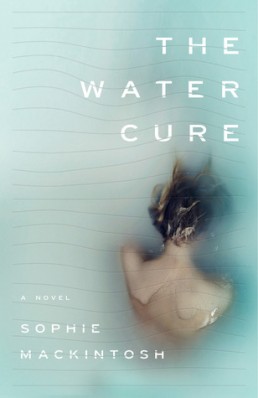By Delilah Kealy-Roberts
Photography by Emily Rudolph, via Unsplash
It’s round two of the Bechdel Book Club (I’ve missed you too!) and this time we’re getting a bit dystopian…
Dystopian and utopian writing has long been my jam, but recently it’s all seemed more uncomfortably relevant than ever. Scary, huh? When I started writing my final year dissertation on The Handmaid’s Tale I couldn’t have foreseen how on-the-ball I was with contemporary politics (sorry, I mean it was totally planned and intentionally relevant). I imagine the creators of the hit The Handmaid’s Tale TV show can also relate.
Bit of a dark start to our second meeting, I know! But we’ve got to be prepared. And us women have to stick together and prepare. Although, saying this, there’s preparation and then there’s what the characters of Sophie Macintosh’s 2018 novel The Water Cure undergo.
It took me a while to get into this intriguing multi-narrative debut novel. We hear from the perspective of three sisters, Grace, Lia and Sky, who live on an island in isolation from the foggy outside world. The girls live with their Mother and ‘King’, a father figure – it remains vague for most of the book whether these family ties are biological or not. The girls undergo a series of trials and tribulations on a daily basis. These are described within the novel as ‘therapies’, including ‘the drowning game’, ‘the love therapy’, and of course ‘the water cure’. The premise is that these therapies have been put in place to keep the women safe from the toxic world across the sea from their island home.
The girls undergo a series of trials and tribulations on a daily basis. These are described within the novel as ‘therapies’, including ‘the drowning game’, ‘the love therapy’, and of course ‘the water cure’. The premise is that these therapies have been put in place to keep the women safe from the toxic world across the sea from their island home.
Hmm…
Mysterious, right? And actually reading the book doesn’t help clear it up. It remains dubious throughout whether we have been thrust into a dystopian landscape in which women’s bodies cannot survive — they are physically damaged by the toxicity of men and need to practice extreme caution so as not to become infected — or, whether we are instead witnessing extreme psychological manipulation.
The narrators of The Water Cure are unreliable to say the least. Grace, Lia and Sky are sisters, but all face their individual battles throughout the novel. Their relationships are tested — especially when they come into contact with three men, washed up on the coast of their island — as is their faith in their parents and the narratives they have been brought up to believe.
Men pose a threat in Macintosh’s novel and undoubtedly carry power and influence, but on reflection, this novel is about female relationships and the bond between sisters. Furthermore, despite the dangerous backdrop, the characters resist victimhood. They have been told that their bodies are weak, but have fought this narrative with an unnerving force. The three girls are powerful when united, and downright scary when it comes to protecting each other:
“We sisters have always been cruel in our own way, but I believe our cruelty is allowable. It kept us alive, it helps us to put things right.”
It’s somewhat relatable though, right? It’s one thing when you feel threatened yourself, but if anyone comes near a sister, a friend, or any other close woman in trouble, it’s all hands on deck and claws out.
This is what The Water Cure captures resilience as a unit of women, against all odds. It doesn’t get much more ‘Bechdel’ than that surely?!
These may be troubling times, but we’re not quite living a dystopia yet! It’s good to know though, that if we were we’d have our each other to rely on and plenty of brave women ready to prove their resilience!
Loved this review? Check out the first review and introduction by clicking here.
…
Some Bechdel Book Club Questions:
- Do you think the sisters were wrong to trust the men when they were washed ashore? Is it more dangerous to be open or completely guarded?
- What do you think the significance of the water imagery was in this novel? Is the physicality of the island important?
- And the big one: how truly real is this dystopia?
Delilah Kealy-Roberts
Delilah is a BA English literature graduate and writer based in the North East of England. She specialises in anything dystopian, with a particular interest in gender politics (spoiler alert: gender roles don’t exist in the apocalypse). She has an affinity towards finding cheap flights out of the UK and colossal veggie breakfasts.








